Vaginal mesh: UK government told to apologise after 'damning' review
- Published
'I can't get through a day without pain medicine'
A review into procedures that ruined the lives of women and babies is "damning", according to a contributor.
Jemima Williams from the Vale of Glamorgan was left in excruciating pain after having vaginal mesh implants.
In total, 700 women and their families shared "harrowing" details about the procedure, as well as a hormonal pregnancy test and an epilepsy drug.
The UK government has been asked to apologise, and to set up specialist centres for those affected.
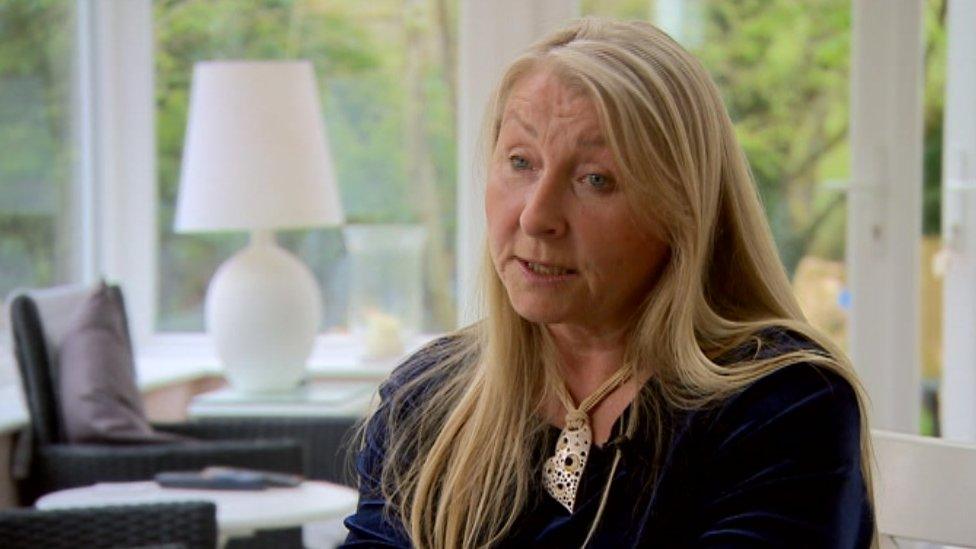
Jemima Williams, founder of the Welsh Mesh Survivors support group, was involved in the review
Mrs Williams, who first had the implants in 2002 after a pelvic organ prolapse, described the effects in 2018: "I never sleep... I wake up in excruciating pain, which is burning, rectal pain, vaginal pain."
She described it as a "global medical health disaster" and has been one of those involved in the review, external.
The report, published on Wednesday, describes complaints and worries often being dismissed as "women's problems", leaving many traumatised, intimidated and confused.
In calling for a UK government apology, review chair Baroness Cumberledge said: "I have conducted many reviews and inquiries over the years, but I have never encountered anything like this; the intensity of suffering experienced by so many families, and the fact that they have endured it for decades.
"Much of this suffering was entirely avoidable, caused and compounded by failings in the health system itself."
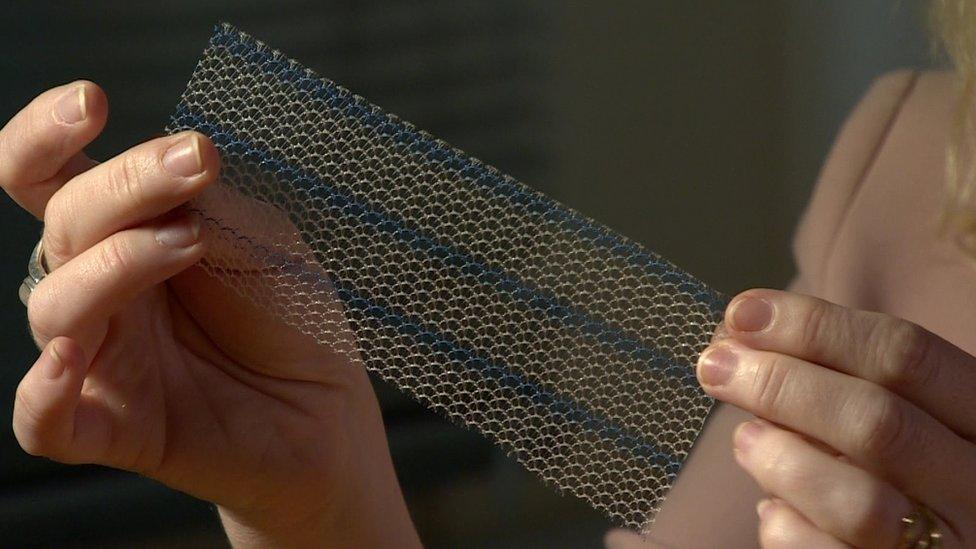
Some mesh implants have caused painful and debilitating complications
Cases span decades and are believed to involved hundreds of thousands of women and babies.
The review looked at three treatments:
Primodos - a hormonal pregnancy test, withdrawn from the market in the 1978, which is thought to be associated with birth defects and miscarriages. The manufacturer, Schering, now part of Bayer, has always denied a link between the drug and deformities in babies.
Sodium valproate - an epilepsy drug which, while effective for preventing seizures, can be harmful if taken during pregnancy, causing physical abnormalities to the baby in the womb as well as developmental delay and autism in children whose mothers took it.
Pelvic mesh implants - used as a surgical option to treat prolapse and incontinence, some women say they have been left with internal damage and agonising chronic pain "like razors inside the body". In the last few years, the procedure has only been offered on the NHS under exceptional circumstances and high vigilance.
It concluded by calling for an apology to families, that a patient safety commissioner is appointed to be their port of call, with a redress agency for those harmed, as well as specialist centres.
It also called for a central database to be created by collecting key details including the patient, the implanted device, and the surgeon.
Wales already has two specialist mesh removal centres in Cardiff and Swansea - set up in 2018 after interim recommendations - and £1m-a-year funding for a Women's Health Implementation Group, which has created a network of clinicians across Wales to help women with these conditions.
'I will always carry the guilt for my son's condition'
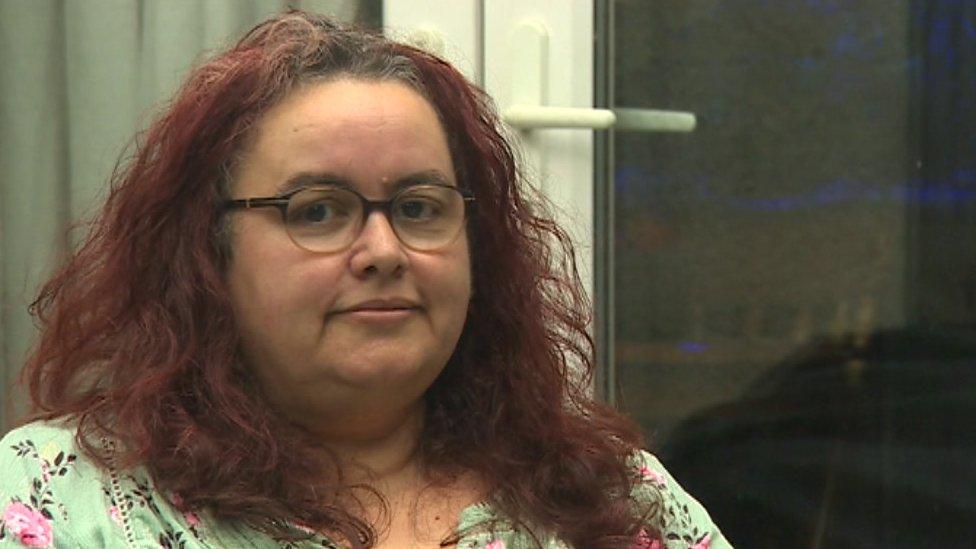
Jo Cozens took sodium valproate during her pregnancy with son Tomos
Jo Cozens "will always carry the guilt" as she says her prescription of sodium valproate was the reason why her son Tomos has aspergers.
The 49-year-old took the drug to control her mild epilepsy but the mother from Abertridwr, near Caerphilly, said she would have come off it if she had had an "informed choice."
Ms Cozens said Tomos's condition affects his social life and "our personal relationship" - and the 20-year-old's poor hearing means he has to wear hearing aids.
"He took all the same drugs as me in the womb," said Ms Cozens, a campaigner and chair of the OACS Charity (Organisation for Anti-Convulsant Symdrome).
"I didn't breast feed so he must have had withdrawal symptoms from birth that I didn't know about.
"As a mother, I'm devastated and I will always carry the guilt. I feel guilty for the medication that I took that I really didn't need to take because I had only had four seizures.
"If I'd been given an informed choice, then I would have come off the medication before having Tomos.
"As lovely as he is, he is never going to have the same life as his cousin who was born a month before him."
'I rely on pain relief to get through the day'
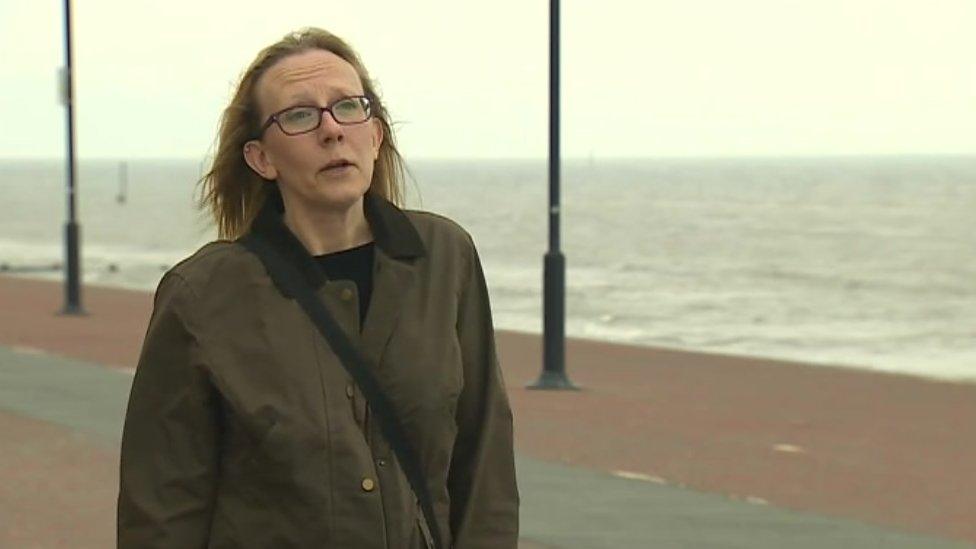
Karen Preater has help from a walking stick due to the pain of her vaginal mesh surgery
Karen Preater was on crutches after her mesh surgery went wrong and now she says she "can't get through the day without pain medication".
"I can't have it removed, it is such a high risk operation," said the mother from Rhyl.
"It affects your family, your friends, you're not as sociable anymore. The pain is always there.
"My mum helps me in the house a lot as do my kids. It's things like not being the mum I thought I'd be, like taking part in the parent's sports day race. I am more restricted."
'Careful consideration'
The UK government's patient safety minister Nadine Dorries said she was determined to make the changes needed to protect women in the future.
"Our health system must learn from those it has failed. We will now give this independent review the full and careful consideration it deserves before setting out our full response."
A Welsh Government spokesman said: "We are not able to comment on the report or its recommendations until it is sent to us later today.
"We welcome the publication of the review team's report and recommendations which, although primarily relating to England, will have implications for clinical practice in Wales.
"When received, we will carefully review and assess the recommendations in relation to current practices in Wales before commenting further."
- Published8 July 2020

- Published2 April 2019
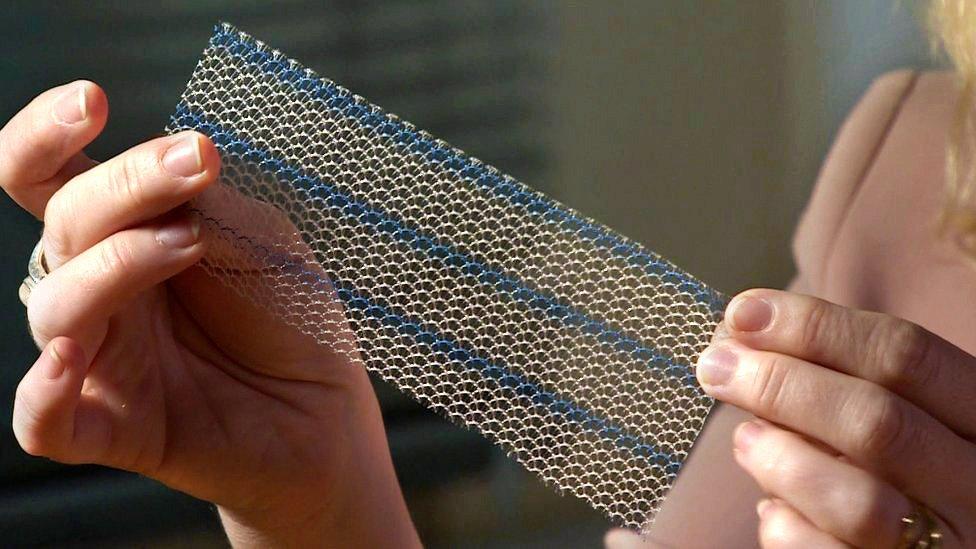
- Published10 January 2018

- Published4 May 2018
